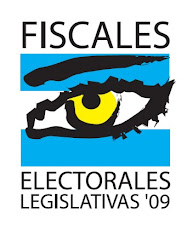Navengando en el Wall Street Journal me encontré esta curiosa e inquietante noticia:
"The past can never be predicted, and perhaps never more so than when it comes to the German left. Two years ago, we learned that Nobel Laureate Günter Grass -- the literary scourge of all things fascist, especially America -- had himself been a member of the Waffen SS. Now comes another zinger that casts the radical political and social upheavals of the late 1960s in new and revealing light.
The historical surprise concerns a turning point whose ripple effects were felt in Europe and beyond. On June 2, 1967, a West German policeman fatally shot an unarmed, 26-year-old literature student in the back of his head during a demonstration in West Berlin against the visiting Shah of Iran. Benno Ohnesorg became "the left wing's first martyr" (per the weekly Der Spiegel). His dying moments captured in a famous news photograph, Ohnesorg galvanized a generation of left-wing students and activists who rose up in the iconic year of 1968. What was a fringe soon turned to terrorism.
To them his killer, Karl-Heinz Kurras, was the "fascist cop" at the service of a capitalist, pro-American "latent fascist state." "The post-fascist system has become a pre-fascist one," the German Socialist Student Union declared in their indictment hours after the killing. The ensuing movement drew its legitimacy and fervor from the Ohnesorg killing. Further enraging righteous passions, Mr. Kurras was acquitted by a court and returned to the police force.
Now all that's being turned on its head. Last week, a pair of German historians unearthed the truth about Mr. Kurras. Since 1955, he had worked for the Stasi, East Germany's dreaded secret police. According to voluminous Stasi archives, his code name was Otto Bohl. The files don't say whether the Stasi ordered him to do what he did in 1967. But that only fuels speculation about a Stasi hand behind one of postwar Germany's transformative events.
Mr. Kurras, who is 81 and lives in Berlin, told the Bild am Sonntag newspaper that he belonged to the East German Communist Party. "Should I be ashamed of that or something?" He denied he was paid to spy for the Stasi, but asked, "What if I did work for them? What does it matter? It doesn't change anything." Mr. Kurras may be the monster of the leftist imagination -- albeit now it turns out he is one of their own."
No conocía sobre ese personaje ni sobre ese asesinato ni su aparente relación con las protestas y la "radicalización" de los años 60s.
No es nada nuevo en realidad, para cualquiera con medianos conocimientos de historia, la perversidad y maquiavelismo de los regímenes comunistas en la guerra fría (y de los regímenes capitalistas tambien).
Pero la noticia me produjo o mejor, volvió a producirme una reflexión: ¿Cuántos hechos políticos y sociales aparentemente espontaneos o no planeados de la guerra fría en realidad erán obra de alguno de los bandos siguiendo una maquiavelica estrategia y agenda política?
Cuanto de la historia política y social "oficial" es una farsa, un tinglado montado por gobiernos y movimientos políticos?
Y peor aún, cuantos de los hechos que suceden hoy en día son así, diseñados para manipular a las masas en favor de una u otra ideología?
Thursday, May 28, 2009
Las mentiras de la guerra fría y la política
Subscribe to:
Posts (Atom)
















